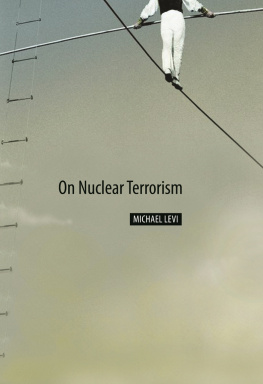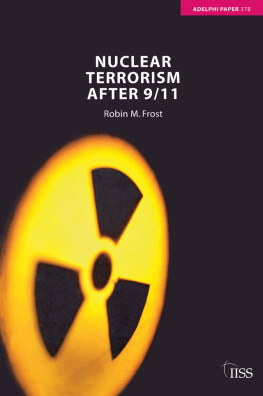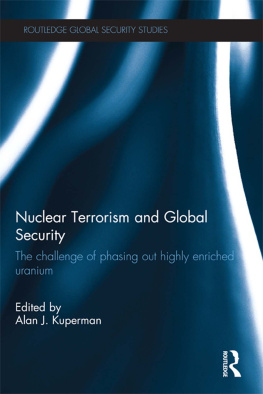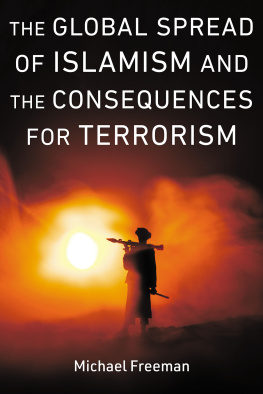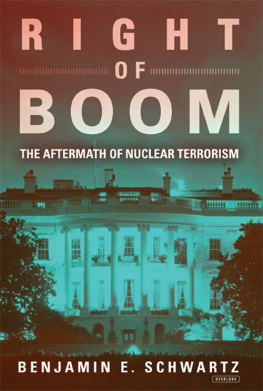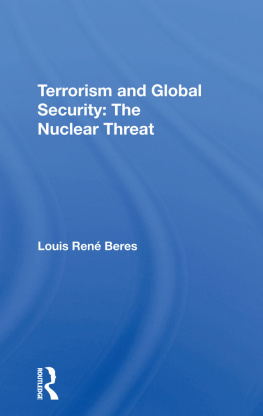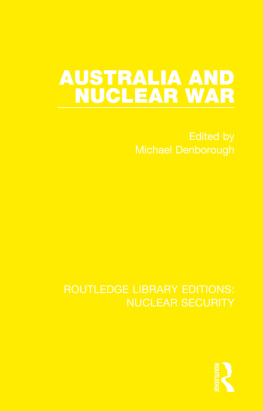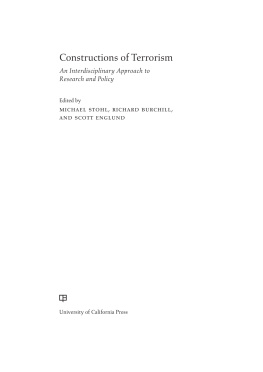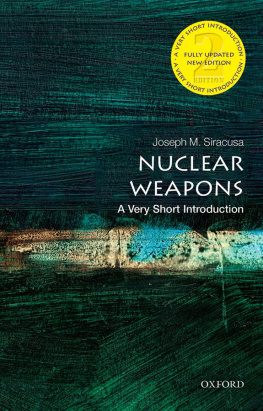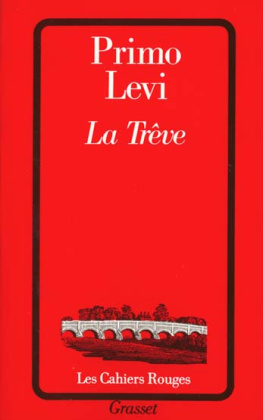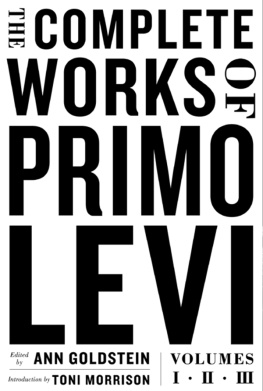On Nuclear Terrorism
On Nuclear Terrorism
Michael Levi
In cooperation with the Council on Foreign Relations
Harvard University Press
Cambridge, Massachusetts
London, England
Copyright 2007 by Michael Levi
All rights reserved
Printed in the United States of America
Founded in 1921, the Council on Foreign Relations is an independent, national membership organization and a nonpartisan center for scholars dedicated to producing and disseminating ideas so that individual and corporate members, as well as policymakers, journalists, students, and interested citizens in the United States and other countries, can better understand the world and the foreign policy choices facing the United States and other governments. The Council does this by convening meetings; conducting a wide-ranging Studies program; publishing Foreign Affairs, the preeminent journal covering international affairs and U.S. foreign policy; maintaining a diverse membership; sponsoring Independent Task Forces; and providing up-to-date information about the world and U.S. foreign policy on the Councils website, www.cfr.org.
THE COUNCIL TAKES NO INSTITUTIONAL POSITION ON POLICY ISSUES AND HAS NO AFFILIATION WITH THE U.S. GOVERNMENT. ALL STATEMENTS OF FACT AND EXPRESSIONS OF OPINION CONTAINED IN ITS PUBLICATIONS ARE THE SOLE RESPONSIBILITY OF THE AUTHOR OR AUTHORS .
First Harvard University Press paperback edition, 2009.
Library of Congress Cataloging-in-Publication Data
Levi, Michael A.
On nuclear terrorism / Michael Levi; in cooperation with the Council on Foreign Relations.
p. cm.
Includes bibliographical references and index.
ISBN 978-0-674-02649-0 (cloth : alk. paper)
ISBN 978-0-674-03238-5 (pbk.)
1. Nuclear TerrorismUnited StatesPrevention. 2. Nuclear weapons Government policyUnited States 3. TerrorismGovernment policy United States. 4. National securityUnited States. I. Council on Foreign Relations. II. Title
HV6433.86.L48 2007
363.3255560973dc222007014485
To my parents
Contents
Nuclear terrorism is an immediate challenge for the entire world. Experts are studying it, policymakers are responding to it, and the public also needs to understand it.
Yet open discussion of nuclear terrorism can present problems. Those of us who write about terrorism face a perpetual dilemma. When should we point out that a security system in widespread use is imperfect, as I do in this book? If the vulnerability is obvious, identifying it publicly can, without introducing any new dangers, prompt authorities to address it. If the problem is more obscure or easier to exploit, things become more difficult: is it best to stay silent and hope that the gap is and will remain unknown, or is it more prudent to expose it and possibly provoke governments to fix it?
Almost all experts who work in this field self-censor, because they fear helping terrorist groups. I talked to people with long experience in these matters, and settled on a few simple rules. This book does not contain calculations that could give meaningful help in designing nuclear weapons; this omission may come at the expense of slightly weakening my arguments for technically inclined readers, but that is unavoidable. (I suspect that most readers will be quite happy to be spared as many calculations as possible.) I have relied on simple, obvious examples to make the same points. Other situations are less clear, and in each case, I asked three questions. Does identifying a way terrorists might fail help point them in a better direction, or does it describe an inevitable problem? Does the analysis have important policy implications? Is there another way to make the same point? With these questions in mind I have sought a balance between two responsibilities: to avoid helping potential nuclear terrorists, and to promote more effective strategies for defense against them.
Nuclear terrorism is not, fundamentally, a technical topic. Defenses are as much about intercepting airplanes as they are about improving radiation detection, as much about human intelligence as they are about the technical demands of bomb-building. But nuclear terrorism is not a nontechnical subject, either. A full understanding of the defenses we need is impossible without knowing something about the underlying science and technology of nuclear weapons. I have written this book so that both technophiles and technophobes can understand it. Early in the reader will find brief tutorials on the basics of nuclear weapons technology and radiation detection. The book avoids mathematical calculations, though it often explains their basic contours. For the more technically inclined reader, mathematical details that support assertions in the text are explained in the endnotes. A handful are also included in the appendix.
While writing, I found myself noticing parallels to On Thermonuclear War, an infamous book published by Herman Kahn nearly half a century agohence the title of this book. Addressing specialists and the public alike, Kahn drew both on his imagination and on the long history of warfare to challenge basic assumptions about nuclear war. Many rightly questioned his principles, but he provoked everyone to think anew about a grave danger. I hope that in writing On Nuclear Terrorism, I have succeeded in doing the same.
C/S | Containment/Surveillance |
CBRN | Chemical, biological, radiological, nuclear |
DBT | Design Basis Threat |
DNDO | Domestic Nuclear Detection Office |
DOE | U.S. Department of Energy |
FMSF | Mayak Fissile Material Storage Facility |
HEU | Highly enriched uranium |
IAEA | International Atomic Energy Agency |
IND | Improvised nuclear device |
INS | U.S. Immigration and Naturalization Service |
ISG | Iraq Survey Group |
keV | Kilo-electron-volt |
LASCAR | Large Scale Reprocessing |
MCC | Russian Mining and Chemical Combine |
MeV | Mega-electron-volt |
MOX | Mixed oxide |
MPC&A | Materials Protection, Control, and Accounting |
NATO | North Atlantic Treaty Organization |
NORAD | North American Aerospace Defense Command |
NRTA | Near-real-time-accounting |
NSG | Nuclear Suppliers Group |
Pu | Plutonium |
SAFF | Safing, Arming, Fusing, and Firing |
SNM | Special nuclear material |
U | Uranium |
WMD | Weapons of mass destruction |
In the early hours of July 29th, 2002, a ship carrying fifteen pounds of uranium encased in a lead-lined steel pipe slipped into the New York harbor. Twenty-five days earlier, it had begun its journey in Austria, from whence it had traveled by train through Hungary, Romania, and Bulgaria, to Turkey. There the uranium had been loaded into a shipping container, and on July 10th, it had departed by sea for America. It did not enter the United States entirely unnoticedit was selected upon arrival for scanning by X-ray and radiation monitoring equipment. It passed their tests with flying colors.

